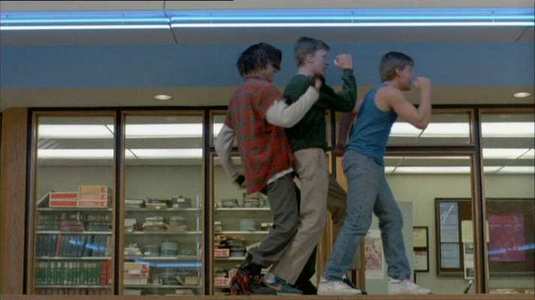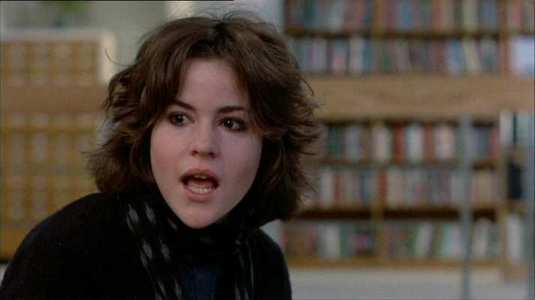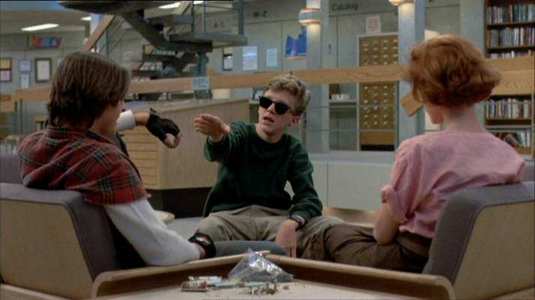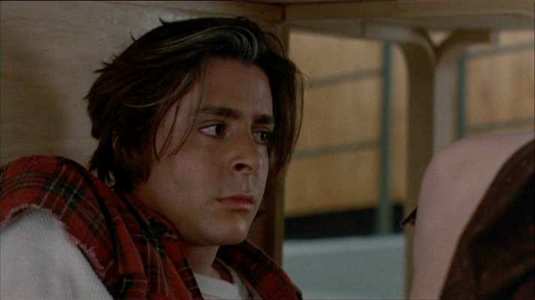Review of Breakfast Club, The
Introduction
I was a teenager in the eighties, and this film was my bible. Or it would have been, if I had actually seen it in the eighties. The first time I saw The Breakfast Club, I had left school, escaping that crucible of peer pressure, and started at university. But it was still close enough to the eighties as to make no difference, and while snoods were a thankfully distant memory, we were still in the age when greed was good, and introspective navel gazing a global pastime. Post-modern irony was still a marketer`s dream, so it`s no surprise that this movie had a significant effect on me. And there was a period that this movie was nestled securely in my `best ever` list; so profound were its philosophical musings and social observations. Then I grew up. I`ve actually dreaded coming back to this film. With each passing year, another snarky reviewer points out a flaw, the story looks more dated, and yet another five spoofs come out. With all that baggage it becomes harder to look at this film through those naïve, rebellious teenaged eyes. Then I press play, and that classic Simple Minds theme explodes from the speakers…
Imagine trying to sell this premise to a Hollywood exec today. Well, we`ve five high school students who wind up in Saturday detention. They`re completely different personalities, the nerd, the jock, the princess, the criminal and the kook. We`ve got a school principal supervising them who is so full of himself that he`s the comic relief. And over the ninety minutes, the kids get to know each other beyond the stereotypes, share their problems and become better people because of it. And they smoke some dope and have a random dance number. Said exec will be asking if there are any transforming robots in it, missing the point that it will cost less to make than most movie trailers and tell a better story into the bargain. Sometimes I really miss the eighties.

Video
It`s a 1.78:1 anamorphic transfer according to the DVD case, coded for Regions 2, 4 and 5. I really can`t fault the transfer, and other than the slightest hint of aliasing, the film seems to have made the transition to the digital medium just fine. It`s still a 20-year-old film though, even if age has been kind. Print damage is relatively minimal, and the image can be a little soft at times with a hint of grain. It could have been much worse, and short of a complete and expensive remaster, this is as good as it will probably get.

Audio
You get a choice of DD 5.1 and DTS English, which is surely overkill for a film that was originally released to theatres in stereo. Add to that a film which is heavy on the dialogue and light on the action, and the speakers really only come alive for the eighties soundtrack. Which in my view is a good thing. Foreign languages are catered for with DD 2.0 mono dubs in Spanish, Italian, French and German, and there is a DD 5.1 Russian voiceover track. There are also more subtitle tracks than you can shake a forest at, let alone a stick.

Features
You wouldn`t steal a handbag or a car would you. We don`t care about that, because we know that you`re all criminals. You may have paid for this film, but you probably pirate all the rest. We know who you are. We`re watching you. You`re scum sucking thieves, and the day isn`t far off when we will catch you. We`ll gouge out your eyes, and then rip off your head and then spit down your neck. Then we`ll go after your family. You larcenous human detritus will burn for all eternity in the depths of hell.
Thank you for your attention, now enjoy the film.
Theatrical Trailer

Conclusion
The Breakfast Club has transcended its origins. It`s continually referenced, cited as the birth of the brat pack phenomenon, and sent up on a regular basis. Paul Gleason even reprised his Principal Vernon role to less than hilarious effect in the comedy by numbers Not Another Teen Movie. The characters had become staple stereotypes by the time the end credits had rolled, and a generation of would be rebellious teens was enraptured.
Then there are the quite valid criticisms, not least of which is that the film just hasn`t dated well. Styles and music aside, The Breakfast Club looks remarkably tame now, when we live in a world where schools are practically fortresses, the truly rebellious teen takes a submachine gun to school and most likely comes home in a body bag, some classrooms are filled with gossiping fourteen year old girls, and their babies, and in the face of all this `immorality`, peer pressure, violence and general disillusionment, the average teacher has about as much power as a sparrow in a gale to actually make a difference. Now I look at the teens in The Breakfast Club and I see a collection of reasonably well-adjusted, white middle class kids with white middle class problems. Even the drugs issues are laughable here. Some remain shocked that this film apparently condones the use of marijuana. But this was when marijuana was still usually a leaf, and its strongest effect was a case of the giggles followed by a craving for junk food. Nowadays the downgraded stuff that is available is refined and strengthened to the point where it can stun an elephant, and school kids are experimenting with far more potent substances. The Breakfast Club just isn`t that relevant.
But films don`t have to remain relevant. Just as Bryan Adams waxes lyrical about the summer of `69, The Breakfast Club captures a moment in time, an observation of the way things were. Too, the fundamental issues it examines, the character studies it makes do remain pertinent to a degree. Children going to school will always be labelled, compartmentalised, and be subject to peer pressure. There will always be the sporty kid, the class princess, the swot, and those characters that just don`t fit in. What happens when those archetypes are forced to spend time together? This film shows that there is a commonality to the teenage experience, and that while children may be in different groups, the feelings that they experience and the pressures that they come under are pretty identical. The obvious common cause is that of rebelling against authority, and by setting up the antithetical Vernon as a common bugbear, it gives reason for the main characters to come together. But they have to work through the shells that they present the outside world, and their innate prejudices before they can communicate with each other.
This process is constantly funny, occasionally touching, and never less than enthralling. It does typify that typical late-eighties early-nineties tendency to over analysis of one`s feelings, that so called introspective navel-gazing, but it does it so well, and with such delicacy and pathos that, other than the odd misstep it works splendidly well.
The Breakfast Club is by no means perfect. It is overwritten for one thing, and often feels like a stage play. These are characters given to pronouncements and declarations, and the dialogue can seem forced. This is especially true of the Bender character, who for a dropout loser with a wretched home life, comes across as remarkably erudite and well educated. And there is the random dance number which all eighties teen movies had to have. It makes no sense, and is just there to showcase some cool music and break up the talky bits.
I love the Breakfast Club still. I can forgive its flaws, and all negative criticism and subsequent send-ups go out of my mind when the film starts. It`s perfect nostalgia food for someone like me who still thinks that the eighties were a good idea. For someone coming new to the film, it may look dated, but the central themes of the film will still resonate with teenage audiences, once they stop faux puking at the music, laughing at the styles, and searching for an eighties-noughties dictionary to translate the slang. Let`s face it, after 25 years there still aren`t many films like it out there.
Your Opinions and Comments
Be the first to post a comment!